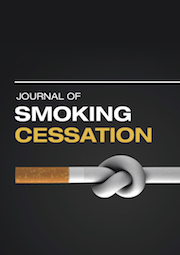Article contents
The Effects of Smoking Cessation on the Risk Factors for the Metabolic Syndrome: A Follow-Up Study of Veterans
Published online by Cambridge University Press: 06 April 2016
Abstract
Objective: To evaluate the impact of short-term smoking cessation on Metabolic Syndrome (Mets) component risk factors, and hormones related to MetS and human metabolism.
Methods: Smoking veterans with MetS, attending stop smoking class, were followed up close to one year. Paired comparisons between after the follow up and baseline data were made using t-test.
Results: A total of 95 smoking veterans with MetS completed average close to one year follow up. Thirty subjects completely quit for the average of 6 months, while 36 subjects continued smoking during the follow up. At the end of study, quitters average waist circumference increased 2.98 cm (0.69–5.27), weight increased 2.05 kg (−0.03 to 4.13), HDL cholesterol increased 4.17 mg/dl (1.03–7.32), triglyceride decreased 56.17 mg/dl ((−1.96 to 111.20), and MetS prevalence decreased 13% (p = 0.05). The changes in ghrelin were moderately positively associated with duration of quitting smoking (R2 = 43.99, and p < 0.01).
Conclusion: Compared to the baseline, quitters HDL was up, triglyceride was down, and overall MetS prevalence was lower. The longer the duration of quitting, bigger the increase in ghrelin. There were no significant changes in serum leptin, ghrelin, serum insulin, and insulin resistance after quitting smoking.
- Type
- Original Articles
- Information
- Copyright
- Copyright © The Author(s) 2016
References
- 4
- Cited by


